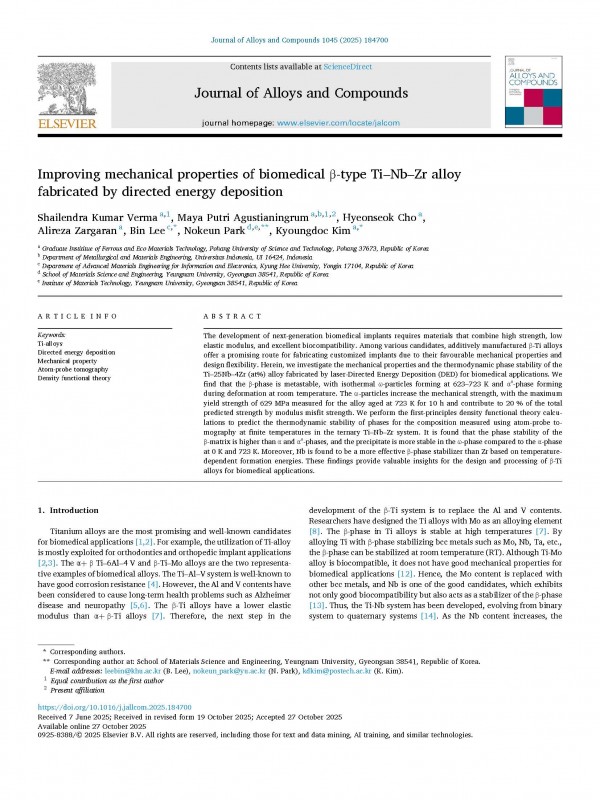ICMEL [ICMEL] Prof. Kyungdoc Kim: Improving mechanical properties of biomedical β-type Ti–Nb–Zr alloy fabr…
페이지 정보

작성자 최고관리자
댓글 0건 조회 38회 작성일 2025-11-04 15:30
본문
· Abstract: The development of next-generation biomedical implants requires materials that combine high strength, low elastic modulus, and excellent biocompatibility. Among various candidates, additively manufactured β-Ti alloys offer a promising route for fabricating customized implants due to their favourable mechanical properties and design flexibility. Herein, we investigate the mechanical properties and the thermodynamic phase stability of the Ti–25Nb–4Zr (at%) alloy fabricated by laser-Directed Energy Deposition (DED) for biomedical applications. We f ind that the β-phase is metastable, with isothermal during deformation at room temperature. The ω-particles forming at 623–723 K and ω α ′-phase forming -particles increase the mechanical strength, with the maximum yield strength of 629 MPa measured for the alloy aged at 723 K for 10 h and contribute to 20 % of the total predicted strength by modulus misfit strength. We perform the first-principles density functional theory calcu lations to predict the thermodynamic stability of phases for the composition measured using atom-probe to mography at finite temperatures in the ternary Ti–Nb–Zr system. It is found that the phase stability of the β-matrix is higher than α and α ′-phases, and the precipitate is more stable in the ω-phase compared to the -phase at 0 K and 723 K. Moreover, Nb is found to be a more effective β-phase stabilizer than Zr based on temperature- dependent formation energies. These findings provide valuable insights for the design and processing of β-Ti alloys for biomedical applications.
관련링크
댓글목록
등록된 댓글이 없습니다.




